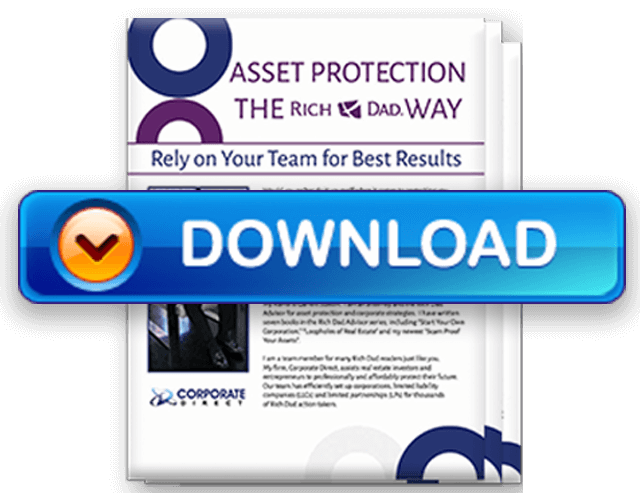Blog | Real Estate
The Best Real Estate Loophole: 1031 Exchange
Rule #1: It Must be investment Property
March 13, 2019
You’ve probably heard my good friend, and Rich Dad Advisor on Taxes, Tom Wheelwright, discuss how to pay less taxes legally. And while we all want to pay less, sometimes there’s just no way around it. But, there is a legal way to defer your taxes, and that’s by utilizing what’s called a 1031 Exchange.
The term 1031 Exchange is defined under section 1031 of the IRS Code. To put it simply, this strategy allows an investor to “defer” paying capital gains taxes on an investment property when it is sold, as long another “like-kind property” is purchased with the profit gained by the sale of the first property. We’ll discuss like-kind property in more detail in section four.
A 1031 exchange is available only for property held for investment or used in a trade or business. Used in a trade or business means that if you own a bicycle shop, and you own the building that your bicycle shop is in, that building is used in your (bicycle) trade or business. A 1031 exchange does not apply to your personal residence, meaning the house you live in. The new tax law repealed personal property exchanges as of 2018. No longer can patents, vehicles, aircraft, boats, livestock, artwork, collectibles, and the like be exchanged.
While people do exchanges on property used by their business, the vast majority of real estate exchanges are done by people that own other investment property. Under the law that has been in effect since 1991, you can exchange any type of investment property for any other type of investment property. For example, if you sell a purple duplex, you could buy an office building, an apartment building, a warehouse, or even bare land. Or you could sell bare land and buy income-producing property in order to increase cash flow, which is a popular investment strategy.
Warning: Special rules apply when depreciable property is exchanged in a 1031. It can trigger a gain known as "depreciation recapture" that is taxed as ordinary income. In general, if you swap one building for another building you can avoid this recapture. But if you exchange improved land with a building for unimproved land without a building, the depreciation you've previously claimed on the building will be recaptured as ordinary income.
After Section 1031 was first written in 1921 (it had a different code number back then), people commonly thought that if you had a purple duplex, you had to find someone else who also owned a purple duplex and swap deeds with them. You might find Adam, who had a purple duplex and was willing to sell it, but he didn’t want yours—he wanted Barb’s. Barb wanted Chris’s, and he wanted Debby’s. Debby, luckily, was willing to take yours. This is what we used to call a five-legged exchange, and the problem with them was that if any one of the parties to this transaction backed out, or wasn’t able to complete his/her leg of the transaction, the entire exchange fell apart for everyone.
1031 Exchanges are incredibly helpful when buying and selling real estate. Here is Investopedia's list of the 10 things to know when using the 1031 Exchange:
Start Your Business the Right Way
Protect your personal and business assets before it‘s too late.
Get a FREE checklist of the best way to incorporate your business from Robert‘s go-to legal advisor, Garrett Sutton and Corporate Direct.

Download Your FREE Checklist Here
- 1031 isn’t for personal use: The provision is only for investment and business property
- Personal property no longer qualifies: Under the new law, only real estate qualifies, unlike previously where aircraft and equipment qualified
- A special transition rule might help: The Tax Cuts and Jobs Act of 2017 includes a transition rule that permits a 1031 exchange of qualified personal property in 2018 if the original property was sold or the replacement property acquired by Dec. 31, 2017.
- “Like-kind” is broad: You can exchange an apartment building for raw land, or a ranch for a strip mall. The rules are surprisingly liberal.
- You can do a ‘delayed’ exchange: In a delayed exchange, you need a Qualified Intermediary (middleman) who holds the cash after you "sell" your property and uses it to "buy" the replacement property for you. This three-party exchange is treated as a swap.
- You must designate replacement property: The IRS says you can designate three properties so long as you eventually close on one of them. You can even designate more than three if they fall within certain valuation tests.
- You must close within six months: You must close on the new property within 180 days of the sale of the old.
- If you receive cash, it’s taxed: You may have cash left over after the intermediary acquires the replacement property. If so, the intermediary will pay it to you at the end of the 180 days. That cash – known as "boot" – will be taxed as partial sales proceeds from the sale of your property, generally as a capital gain.
- You must consider mortgages and other debt: You must consider mortgage loans or other debt on the property you relinquish, and any debt on the replacement property. If you don't receive cash back, but your liability goes down – that, too, will be treated as income to you, just like cash.
- Using a 1031 for a vacation house is tricky: Yes, taxpayers can still turn vacation homes into rental properties and do 1031 exchanges. But this is incredibly sensitive and you should seek professional advice before tackling this.
To learn more about using a 1031 Exchange, read my book, Loopholes of Real Estate.
Original publish date:
March 13, 2019